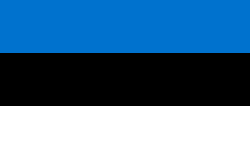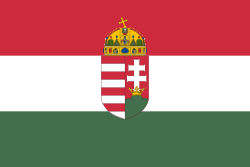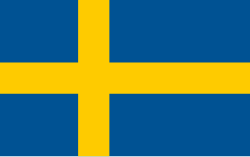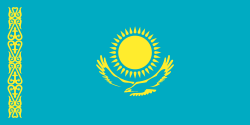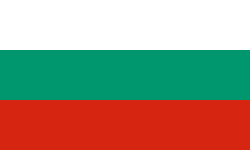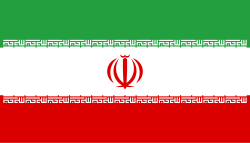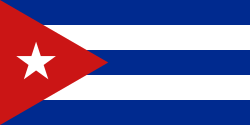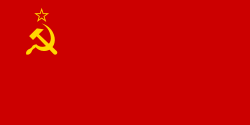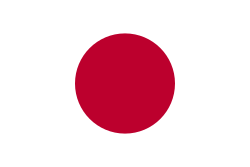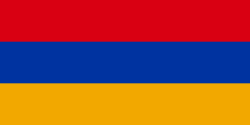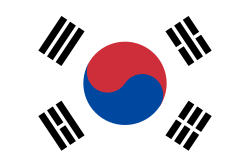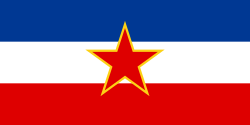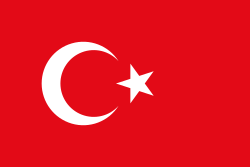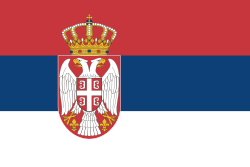Šamil Serikov
| Šamil Serikov | |
|---|---|
| Narození | 5. března 1956 Almaty |
| Úmrtí | 22. listopadu 1989 (ve věku 33 let) Almaty |
| Povolání | zápasník |
| Ocenění | Řád čestného odznaku zasloužilý mistr sportu SSSR Mistr sportu SSSR |
| Některá data mohou pocházet z datové položky. | |
| Přehled medailí | ||
|---|---|---|
| zlato | LOH 1980 | řecko-římský do 57 kg |
| Mistrovství světa v zápasu řecko-římském | ||
| zlato | MS 1978 | bantamová váha |
| zlato | MS 1979 | bantamová váha |
| Mistrovství Evropy v zápasu řecko-římském | ||
| zlato | ME 1979 | bantamová váha |
Šamil Karimovič Serikov (rusky Шамиль Каримович Сериков; 5. března 1956 Almaty, Sovětský svaz – 22. listopadu 1989) byl sovětský zápasník, reprezentant v zápase řecko-římském.
V roce 1980 na olympijských hrách v Moskvě v kategorii do 57 kg vybojoval zlatou medaili. V letech 1978 a 1979 vybojoval titul mistra světa a v roce 1979 titul mistra Evropy.
Externí odkazy
- Šamil Serikov v databázi Olympedia (anglicky)
Média použitá na této stránce
Olympic Rings without "rims" (gaps between the rings), As used, eg. in the logos of the 2008 and 2016 Olympics. The colour scheme applied here was specified in 2023 guidelines.
Olympic Rings without "rims" (gaps between the rings), As used, eg. in the logos of the 2008 and 2016 Olympics. The colour scheme applied here was specified in 2023 guidelines.
Flag of Germany with a 3:2 ratio, instead of 3:5. The 3:2 version was used by the German Confederation and the Weimar Republic. See Flags of the World for more information.
Flag of Hungary, from 6 November 1915 to 29 November 1918 and from August 1919 until mid/late 1946.
(c) I, Cmapm, CC BY-SA 3.0
The flag of the Soviet Union (1955-1991) using a darker shade of red.
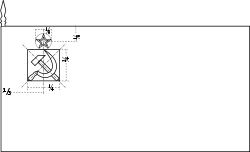
(c) I, Cmapm, CC BY-SA 3.0
The flag of the Soviet Union (1955-1991) using a darker shade of red.

Variant version of a flag of Japan, used between January 27, 1870 and August 13, 1999 (aspect ratio 7:10).
Finská vlajka
Flag of Iran. The tricolor flag was introduced in 1906, but after the Islamic Revolution of 1979 the Arabic words 'Allahu akbar' ('God is great'), written in the Kufic script of the Qur'an and repeated 22 times, were added to the red and green strips where they border the white central strip and in the middle is the emblem of Iran (which is a stylized Persian alphabet of the Arabic word Allah ("God")).
The official ISIRI standard (translation at FotW) gives two slightly different methods of construction for the flag: a compass-and-straightedge construction used for File:Flag of Iran (official).svg, and a "simplified" construction sheet with rational numbers used for this file.
Georgian flag in Pantone MS.
Flag of the Socialist Federal Republic of Yugoslavia (1946-1992).
The design (blazon) is defined in Article 4 of the Constitution for the Republic of Yugoslavia (1946). [1]
Vlajka České republiky. Podoba státní vlajky České republiky je definována zákonem České národní rady č. 3/1993 Sb., o státních symbolech České republiky, přijatým 17. prosince 1992 a který nabyl účinnosti 1. ledna 1993, kdy rozdělením České a Slovenské Federativní republiky vznikla samostatná Česká republika. Vlajka je popsána v § 4 takto: „Státní vlajka České republiky se skládá z horního pruhu bílého a dolního pruhu červeného, mezi něž je vsunut žerďový modrý klín do poloviny délky vlajky. Poměr šířky k její délce je 2 : 3.“
Flag of South Korea from 21 February 1984 to 15 October 1997, when the exact colors were specified into their shades.
(c) RIA Novosti archive, image #556230 / Vladimir Rodionov / CC-BY-SA 3.0
“Olympic champion in classic wrestling, 57kg division, Shamil Serikov and silver medalist of the 1980 Olympiad Jozef Lipien”. Olympic champion in classic wrestling, 57kg division, Shamil Serikov (USSR, right) and silver medalist of the 1980 Olympiad Jozef Lipien (Poland). CSKA sports complex. XXII Summer Olympic Games in Moscow.


